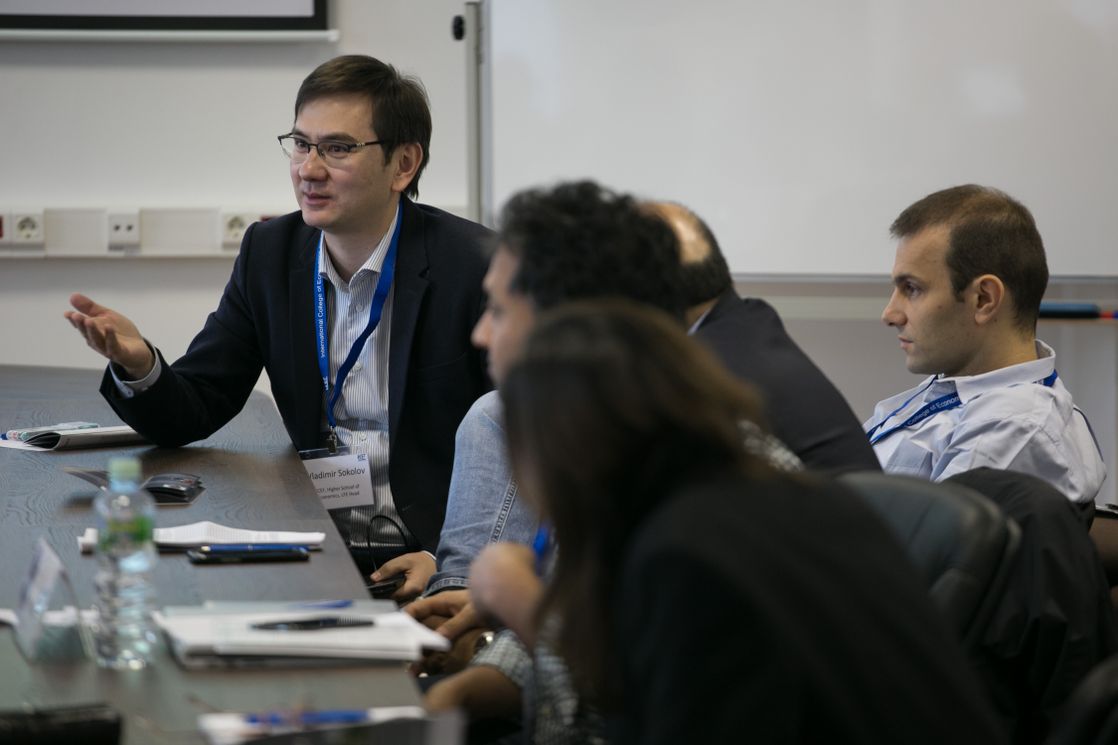'Financial Economics Conference Could Now Go Global'

October 29-30 will witness the 10th Jubilee International Moscow Finance Conference take place online, organized by the HSE ICEF and hosted by its Laboratory of Financial Economics (LFE). Vladimir Sokolov, Head of LFE, gave a brief presentation of the conference participants and keynote speakers and how their findings can affect the global economy.
The idea of the conference
Established in 2010, the Laboratory of Financial Economics held its first conference in 2011. The idea was to set up a center for international financial studies and to present ourselves as an emerging competent team who are eager to pursue research. Over the years of our existence, we have been visited by scientists from around the world. Our conference has earned us a reputation as a focal point on the map of the emerging research venues. There is an increasing interest in cooperation and communication with our scientists.
Every summer our laboratory offers series of Finance Workshops – in online/offline mode as of late – designed as venues for the exchange of research ideas within ICEF and across the HSE. These workshops also contribute to students’ progress by giving them the chance to meet the academic community.
The geography of participants
The conference of 2021 is our jubilee conference and it is the second time we are hosting it online, with expanded geography of participants. This year’s speakers represent the leading universities in North America, Europe and Southeast Asia. The online format definitely benefits our programme by adding new diversity. It simplifies greatly the process of attracting notable researchers, who are now more likely to confirm participation as they don’t need to travel and tackle schedule shifts to combine academic mobility and teaching.
Researchers’ increasing intent to participate is that very positive side of the online format that adds a new diversity to our programme
Now, our finance conference has every chance to go from international to global. We, for example, have not had until this year South Asian researchers among our speakers, but this year we have two, representing the universities in Hong Kong and Singapore.
At the same time, the online format has one big disadvantage. It doesn’t allow for interpersonal interaction, which often plays a big role in academic collaborations. Unfortunately, the same is true about all other occupations and especially those at international level.
Programme
Our every conference is led by one keynote speaker – usually a scientist with prominent contributions to the financial knowledge, who brings a new perspective or vision that could inspire others to think of new lines in financial research. And we also welcome first-time researchers – the young scientists who are just starting their academic careers and already pursuing an exciting line of research. For them, this conference is a chance to present their research to the international community.
What makes our finance conference special is that it is never single-topic. It is meant to cover a broad range of issues, which, taken together, can provide us with the theoretical and empirical research being pursued in various areas of financial science.
This year’s programme features, alongside captivating findings of applied research, the in-depth theoretical studies into auction theory, banking competition and financial networks. One example is the paper by Marcin Kacperczyk of Imperial College London, that explores the impact of bank lending on carbon footprint (Carbon Emissions and the Bank-Lending Channel). Given the investment sector’s current focus on green economy and environmental performance, the topic seems to be more relevant than ever.

No less interesting is the study by Janet Gao, Dirty Money: How Banks Influence Financial Crime, which explores the phenomenon of money laundering and how banks’ reporting policies can foster financial crimes.
Our keynote speaker, Professor Christine Parlour of the University of California Berkeley, is working on a very interesting paper on Ethereum stocks and smart contracts (Decentralized Exchanges). Digital assets and their regulation have a growing presence in financial research, and Christine has contributed by her fundamental study into one of the world’s top cryptocurrencies, Ethereum. Personally, I am looking forward to Christine’s presentation and being updated on the latest trends on cryptocurrency markets, like my colleagues and students. Three years ago when we had Christine at ICEF as a guest speaker, she demonstrated excellence in research and as a public speaker.
HSE content
There will be three researchers representing HSE ICEF. I will make a presentation on Money Illiquidity and my colleagues, Alexey Bulatov and Vincent Fardeau, will be acting as discussants for other speakers’ papers. Having a discussant to comment on an unpublished paper – and all the studies to be presented at the conference have not been published yet – is an important part of research presentation. By providing substantive points and feedback, a good discussant can always prompt a new perspective or give fresh arguments to lead the author to improve their writing. Fresh views and new ideas are what inspires all of us for further research.
Practical significance
The conference is of interest also to regulators. While theoretical studies may not be the first thing to use in daily politics, they serve as an important foundation for long-term strategy building, shaping the society’s perception of innovation. As to the applied research, its quantified results and concrete cases can be used by various government agencies as elements of rationales for their strategies.
Every year, the conference benefits our students by introducing them to the world of academia and trending research topics. Students can participate as listeners or provide comments or act as panelists. Many say our workshops helped them to decide on their choice of thesis topic or PhD programme. It’s encouraging to see that our conference stimulates interest among the increasing number of external participants who would like to be at the forefront of advanced research in finance.
